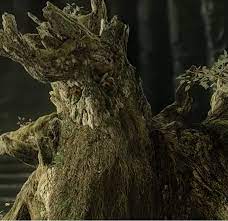Rooted In and Branching Out
Trees are beautiful. I’ve been fascinated with them for a long time. Some of my favorite books at home are about trees. Maybe my love of birds branched out (puns always intended) from that arboreal interest. I used to pore through field guides while other kids were reading comics. The wallpaper in my mind has silver maple leaves and lots of owls. And random lightsabers.
Anyway, if you scroll through the last twenty years of demographics research, the word “rootless” pops up a lot. As in, Americans these days are rootless. It’s a migrant economy, etc. Whereas, in the yesteryear, people would stay with a company until you retire, earn your gold watch, and see your kids do the same while bouncing grandbabies on your knee in the same house in which you used to wet the bed.
No longer. And this current reality is usually lamented by wiser folks like Wendell Berry as a net negative for society, the land, and our future. That’s probably right in broad strokes. Maybe the blossoming YouTube homestead movement is a healthy reaction against suburban/urban rootlessness. I don’t pretend to understand all of those complexities.
But I do understand trees. And I’ve become acquainted with Ents. Our five-year-old is obsessed with Middle-earth and the fullness thereof so we have long conversations about different characters and races and what’s what on the map of that world. My heart sings. But one of the tougher concepts for him to grasp is what an Ent is.
Unsure? I’ll Give You a Ent
Is an Ent a tree? Decidedly not. Is it tree-ish? Deciduously so. They shepherd the forests. They’re part of what C.S. Lewis called the Longaevi (“long-livers”). Neither eternal nor immortal, Ents were ancient and tied to the land. In an enchanted world like ours, we might call them the fey. At the time of the Fellowship of the Ring, the Ent, Treebeard, is the oldest living creature in the world. It’s all just such a wonderful idea.
But there’s a lesser-known aspect of Ent life and their world. Tolkien barely mentions it. When Merry and Pipping are reunited with Aragorn, Gimli, and Legolas at the ruined Isengard, the hobbits talk about Huorns, tree-ish beings distinct from Ents. As Treebeard explained it to them, Huorns were once Ents, but they become rooted. They stopped shepherding. They grew dark and wild. Some of them turned rotten and rageful (like Old Man Willow in the Old Forest when he tried to murder some hobbits). They are not trees, but they are no longer Ents.
Huorns can still listen to Ents and speak to them, but they only appear move when roused by anger. The Ents were able to channel and steer that anger to destroy orc armies, but when their rage breaks free, Huorns can move quickly, wrapped in shadow, to snuff out any perceived threats.
Huorns Need Help
Now that we’ve all geeked out, why am I writing about Ents and Huorns? Usually, I can’t see the world without thinking Tolkienly about it. I’m not complaining. That mythos almost always rhymes with Scripture and pushes me back to Jesus when I forget that this world is charged with the grandeur of God.
The Huorns neglected their calling so that they could turn inward on themselves and stew quietly in their own passions until they are provoked. They need to be guided and can still the shepherds’ voice. Tolkien didn’t mention if they could become more like their true selves again, but I like to hope they could.
The beauty of the gospel is that change is always possible. With Huorns, their rootedness was actually stagnation. The Ents were rooted more by their calling. While they could move around, they stayed in the forest and did what they were created to do even as the trees in their care grew angrier at an industrialized world obsessed with progress at any cost.
I rot from the inside when I choose to put my roots anywhere else besides Jesus and it stunts me. When Jesus said, “apart from me you can do nothing”, it was in the context of vines, roots, branches, and fruit. The Ents have their forest. The branches have the Vine. If we graft ourselves into the dirty sludge of selfishness and rageful fear, we’ll be known as petty and easily offended. If we listen to the voice of the shepherd (to happily mix metaphors) and remain, we’ll bear much fruit.
